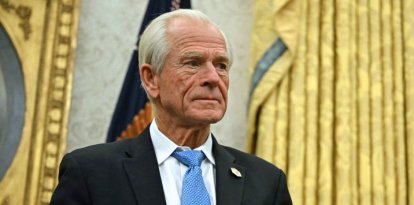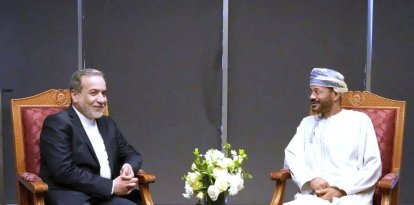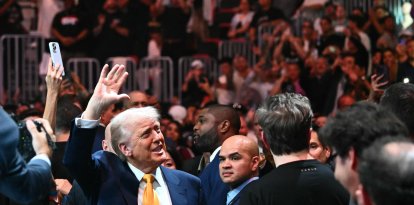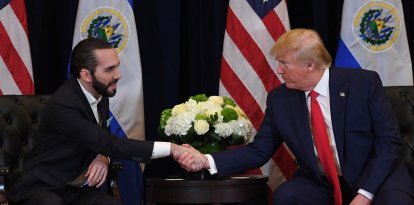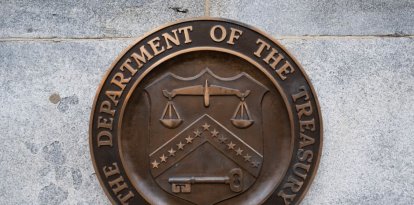Trump, South Africa, Ukraine and the Vance's speech
Speaking to a packed auditorium of European politicians at the Munich Security Conference, U.S. Vice President JD Vance delivered a powerful speech defending the core principles of democracy.
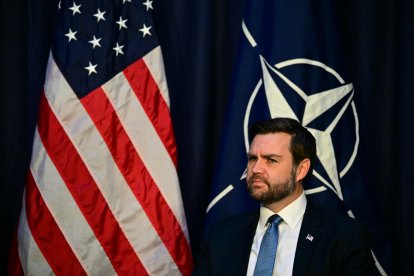
Vice President Vance in Munich
The other day, I wrote in this very space about Trump's interest in South Africa during the early days of his second administration. After listening to two interviews on the subject, I realized there were two key elements I had overlooked. The first, highlighted in one of the interviews by political strategist and projections expert Frans Cronje—who, years ago, accurately predicted the African National Congress would lose its absolute majority based on rigorous polling—can be summed up in a single line from Trump’s decree halting financial aid to South Africa.
"In addition, South Africa has taken aggressive positions towards the United States and its allies, including accusing Israel, not Hamas, of genocide in the International Court of Justice, and reinvigorating its relations with Iran to develop commercial, military, and nuclear arrangements."
The same point was emphasized in another interview with BizNews—one of South Africa’s commendable publications that has resisted the biases of mainstream media without falling into the sectarianism and disregard for facts seen in some non-mainstream outlets—by journalist Joel Pollak, who is reportedly a candidate for U.S. Ambassador to South Africa from Breitbart.
South Africa, as recalled by Joel Pollak—a Johannesburg-born American Jew who emigrated to the U.S. with his family at just eight weeks old—developed a nuclear bomb during the final phase of apartheid. The successors of the Afrikaner nationalist government may still have books and documents in their Pretoria offices that could prove useful to the ayatollahs in their pursuit of nuclear weapons.
The other major issue I did not address in my article is control over the Simon’s Town naval base near Cape Town—a strategic hub for overseeing the route between the Atlantic and Indian Oceans. In recent months, the base has made headlines with the arrival of Russian and Chinese military vessels, following joint naval exercises between their fleets and the South African Navy. China, a major creditor of South Africa, could potentially demand control of a military base in the event of a default, as it has done with other debt-laden African nations. While Trump may not be able to prevent his main adversary from gaining a foothold in both the Indian and Atlantic Oceans, he can at least ensure that U.S. funds do not finance this geopolitical setback.
A confusion of plans
President Trump's first official call with Kremlin leader Vladimir Putin on Wednesday sparked considerable controversy, particularly due to the warm tone with which Trump described the conversation in a TruthSocial post. His openness, coupled with remarks suggesting that Ukraine will inevitably have to cede territory for which Russia has paid a heavy price in human lives, has fueled fresh accusations that he is capitulating to the Kremlin and aligning himself with the very figure responsible for the massive crime of war.
Those who frame the issue in these terms, in my view, confuse the moral plane with the realm of the possible. While politics should be guided by moral principles as much as possible, a responsible leader can only follow this compass without deviation when they have the strength to fully impose their chosen direction. This is not the case for Ukraine or the West in their dealings with Russia. Kremlin forces continue to advance in eastern Ukraine. The Ukrainians lack the manpower to counter the army of a nation with a far larger population and far less regard for human life. Meanwhile, the West remains unwilling to take the decisive leap in military aid that could enable Kyiv to regain the initiative and reclaim lost territory.
What is the most moral position in this context? Is it to cling to a slogan—'as long as it takes'—as Biden and key European leaders have done, despite knowing that Ukraine is losing both lives and territory daily? Or is it to acknowledge reality and work toward an outcome that minimizes losses—not only in human lives on both sides but also in Ukrainian territory?
It is true that Trump has shown sympathies for Putin, and his affinity with the Russian leader makes it easier for him to flatter Putin than to acknowledge Zelensky’s courage and moral superiority. However, once again, we must consider what is possible. Can a negotiation with Putin truly succeed if he is branded a murderer?
What Trump appears to be proposing—offering Ukraine security in exchange for preferential access to its natural resources and other economic benefits—seems, despite the lack of natural sympathy for Ukraine or Zelensky, far more grounded than the emotional and value-driven support being offered by Europe and the Democrats. In an interview with Breitbart, Defense Secretary Pete Hegseth pointed out that this Trump administration policy involves "a whole other level of guarantee," far more substantial than simply saying, "We like you, so we’ll support you."
'It's time to fight'
More than beautiful buildings and institutions
In a vibrant speech delivered to a packed auditorium of European politicians at the Munich Security Conference, U.S. Vice President JD Vance passionately defended the essence of democracy, calling for a plea against its mummification. He emphasized that we can thrive by truly exercising democracy, both in the political and private spheres.
"Embrace what your people tell you, even when it’s surprising, even when you don’t agree. And if you do so, you can face the future with certainty and with confidence, knowing that the nation stands behind each of you. And that, to me, is the great magic of democracy. It’s not in these stone buildings or beautiful hotels. It’s not even in the great institutions that we built together as a shared society."
A Hasidic, ultra-Orthodox Jew was once asked about his lack of interest in studying religion as a phenomenon. He responded, as Hasidic Jews often do, with a parable: "If you're riding a bicycle and, instead of focusing on pedaling, you begin thinking about the laws of physics, you'll fall. The same applies to religion, and to democracy.
RECOMMENDATION
